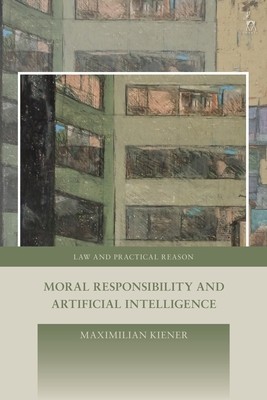
- We will send in 10–14 business days.
- Author: Maximilian Kiener
- Publisher: Hart Publishing
- ISBN-10: 1509956840
- ISBN-13: 9781509956845
- Format: 15.6 x 23.4 x 1.1 cm, hardcover
- Language: English
- SAVE -10% with code: EXTRA
Moral Responsibility and Artificial Intelligence (e-book) (used book) | bookbook.eu
Reviews
Description
This book uses the 'Lorry Driver Paradox', a novel puzzle, to explore and clarify our understanding of moral responsibility, to break new ground in the ethics of artificial intelligence (AI), and to connect moral philosophy, legal theory, and AI ethics. It supports a 'legal turn', i.e. the idea that an inquiry into legal responsibility can guide an inquiry into moral responsibility, and not just the other way around.
It presents a novel conception of strict answerability, as opposed to strict liability, and argues that taking responsibility is a genuine normative power, like consenting or promising. It elaborates on the moral significance of apologies in our social and legal practices. The book presents a paradox-driven methodology, through a combination of legal and philosophical perspectives, and provides solutions to challenges around 'responsibility gaps' and trustworthy AI.EXTRA 10 % discount with code: EXTRA
The promotion ends in 20d.20:57:53
The discount code is valid when purchasing from 10 €. Discounts do not stack.
- Author: Maximilian Kiener
- Publisher: Hart Publishing
- ISBN-10: 1509956840
- ISBN-13: 9781509956845
- Format: 15.6 x 23.4 x 1.1 cm, hardcover
- Language: English English
This book uses the 'Lorry Driver Paradox', a novel puzzle, to explore and clarify our understanding of moral responsibility, to break new ground in the ethics of artificial intelligence (AI), and to connect moral philosophy, legal theory, and AI ethics. It supports a 'legal turn', i.e. the idea that an inquiry into legal responsibility can guide an inquiry into moral responsibility, and not just the other way around.
It presents a novel conception of strict answerability, as opposed to strict liability, and argues that taking responsibility is a genuine normative power, like consenting or promising. It elaborates on the moral significance of apologies in our social and legal practices. The book presents a paradox-driven methodology, through a combination of legal and philosophical perspectives, and provides solutions to challenges around 'responsibility gaps' and trustworthy AI.

Reviews